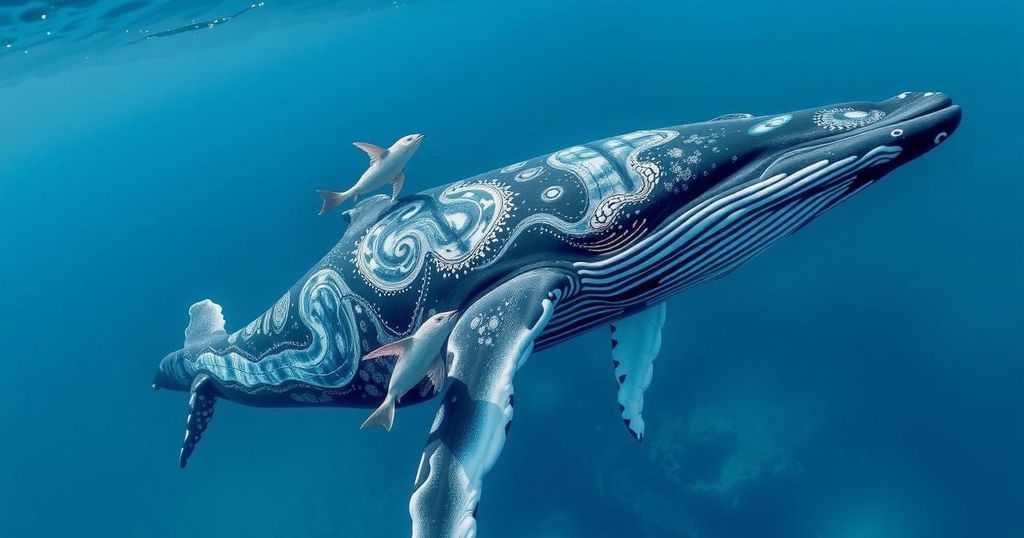Humpback Whale’s Record Migration: A Sign of Oceanic Disturbance?
A male humpback whale has set a new record by completing a migration of over 8,000 miles, raising alarms about the effects of climate change on marine life. The unprecedented journey, documented by scientists, may reflect the diminishing availability of krill in warmer ocean waters. This migration exemplifies the broader, concerning trends of shifting behaviors among marine species as they confront rapidly changing environmental conditions.
A male humpback whale has recently achieved one of the longest migratory journeys ever documented for its species, traveling an impressive 8,000 miles (approximately 13,000 km) across various oceans. Recorded by scientists, this remarkable migration began in 2017 off the coast of Colombia in the Pacific Ocean. The whale was subsequently observed consistently in the same area over the years but underwent a surprising shift in 2022 when it was spotted near Zanzibar, an island off Tanzania in the Indian Ocean, marking a historic record for the species.
Researchers, including Ekaterina Kalashnikova from the Tanzanian Cetacean Program, have expressed their amazement at the whale’s behavior. They suggest that this extraordinary migration pattern could be a response to changing environmental conditions, particularly regarding its food sources. Humpback whales primarily consume krill, whose populations are increasingly affected by rising ocean temperatures, resulting in this whale traveling further in search of sustenance.
Several theories have emerged to explain this extensive migration, including the search for alternative feeding areas due to decreased krill availability, the exploration of new breeding habitats, and shifts in migratory patterns driven by heightened competition among males in an expanding whale population. These alterations in migration are closely tied to the rapidly changing climate and its consequences on marine ecosystems.
As ocean temperatures rise, traditional feeding grounds for humpback whales are becoming less viable, necessitating longer travel distances to find adequate food. The changing behavior of this whale represents a significant shift in the ecological balance and highlights the potential peril facing marine environments as climate change persists.
The alterations in migratory patterns seen in humpback whales are emblematic of broader trends among cetacean species, which are increasingly exploring new territories due to environmental pressures. However, these shifts may place added stress on populations and could lead to further adaptation amid hostile conditions. Dr. Kalashnikova attests to the complexity of these changes, citing an interplay of global climate change, extreme weather events, and specific evolutionary factors relevant to the species. Thus, the movements of this humpback whale likely encapsulate a myriad of influences, with climate change serving as a primary catalyst.
The meticulous tracking of humpback whales has revealed noteworthy changes in their migratory patterns, particularly as they adapt to the impacts of climate change. Declines in food availability, specifically the depletion of krill due to increasing ocean temperatures, pose significant challenges for these marine mammals. The recorded journey of the male humpback not only represents a remarkable physical feat but also serves as a potential indicator of larger environmental changes occurring within marine ecosystems that warrant further investigation.
In summary, the unprecedented migration of the humpback whale across 8,000 miles serves as a poignant reminder of the challenges posed by climate change on marine life. This journey underscores a critical need to understand and mitigate the factors influencing these changes, particularly the impacts on krill populations. The observations and analyses conducted by researchers highlight the necessity for continued monitoring of marine species as they navigate their environments in an increasingly warming world. The complexity of these behavioral shifts necessitates further research to discern the long-term implications for humpback whale populations and marine ecosystems at large.
Original Source: dailygalaxy.com




Post Comment